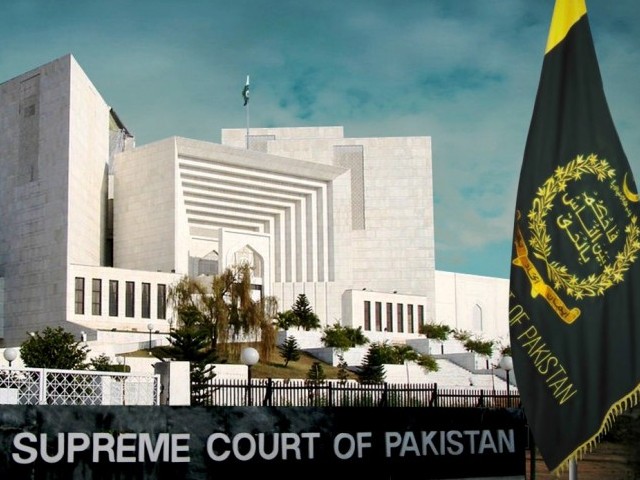Process of the no-confidence vote should continue under Article 95: SC
Apex court says it would not interfere in political matters but legal matters would have to be looked into
Directs Islamabad IGP to submit by Monday a report on the storming of Sindh House by PTI supporters
ISLAMABAD ( Web News )
The Supreme Court of Pakistan on Saturday issued notices to four political parties — PTI, PML-N, PPP and JUI-F — in connection with a petition filed by the Supreme Court Bar Association (SCBA) Pakistan President Chaudhry Muhammad Ahsan Bhoon Advocate seeking the SC’s intervention to prevent “anarchy” ahead of the no-confidence vote against Prime Minister Imran Khan.
The apex court directed the Islamabad inspector general of police to submit by Monday a report on the storming of Sindh House by PTI supporters on Friday. It said hearings on the petition would be conducted on a daily basis.
A two-judge bench, comprising Chief Justice of Pakistan Justice Umar Ata Bandial and Justice Munib Akhtar, heard the petition that was filed by the SCBA earlier this week in which it urged the top court to direct all state functionaries as well as political stakeholders to allow peaceful execution of proceedings for the no-confidence vote in the National Assembly against the prime minister and prevent a possible “anarchic situation” that could result from the government and opposition clashing with each other.
During the hearing on Saturday, Justice Umar Ata Bandial said the SCBA had approached the court and wanted enforcement of the law. The CJP asked Attorney General of Pakistan (AGP) Barrister Khalid Jawed Khan if he also wanted to approach the court, to which the AGP replied that a decision had been made to file a presidential reference on Article 63(A) — which deals with disqualification of parliamentarians over defection — by Monday.
The chief justice said the SCBA wanted public order and implementation of Article 95 of the Constitution, which is related to the no-confidence vote against the prime minister. He clarified the hearing was not a suo moto proceeding as the court had previously received an application.
“What would you say on the freedom of expression and the right to protest? What would you say on yesterday’s incident?” Justice Bandial inquired from the AGP, referring to the storming of Sindh House.
The CJP said the incident went against the freedom of speech, to which the AGP agreed, saying that there was no justification for it. Khan said he wanted to elaborate on the background of yesterday’s incident.
He informed the court that 100 protesters had been dispersed by the police from Sindh House, following which 20 people again came to the location to protest. He said 13 of them were arrested for attacking Sindh House and a case was registered in Secretariat police station. “Today, a magistrate released the 13 protesters,” he said.
“We are not concerned with what is happening. We are here for the Constitution’s implementation,” the chief justice remarked.
He asked whether attacking public property was a bailable offence. “Public property and national institutions were threatened. Members [of the National Assembly] and institutions should be protected in accordance with the Constitution,” Justice Bandial said.
The apex court said that it would not interfere in political matters but legal matters would have to be looked into.
Directing the Islamabad IGP to submit a report on the Sindh House incident by Monday, the chief justice observed, “Sindh House was damaged. All political parties will act in accordance with the law. They should not take any action which is against the law.”
The court directed that the process of the no-confidence vote should continue under Article 95.
Regarding the government’s decision to seek the court’s opinion on Article 63(A), Justice Bandial said the SC would hear the matter after the presidential reference was filed. “The court has to look at the Constitution rather than the political situation,” the CJP observed.

